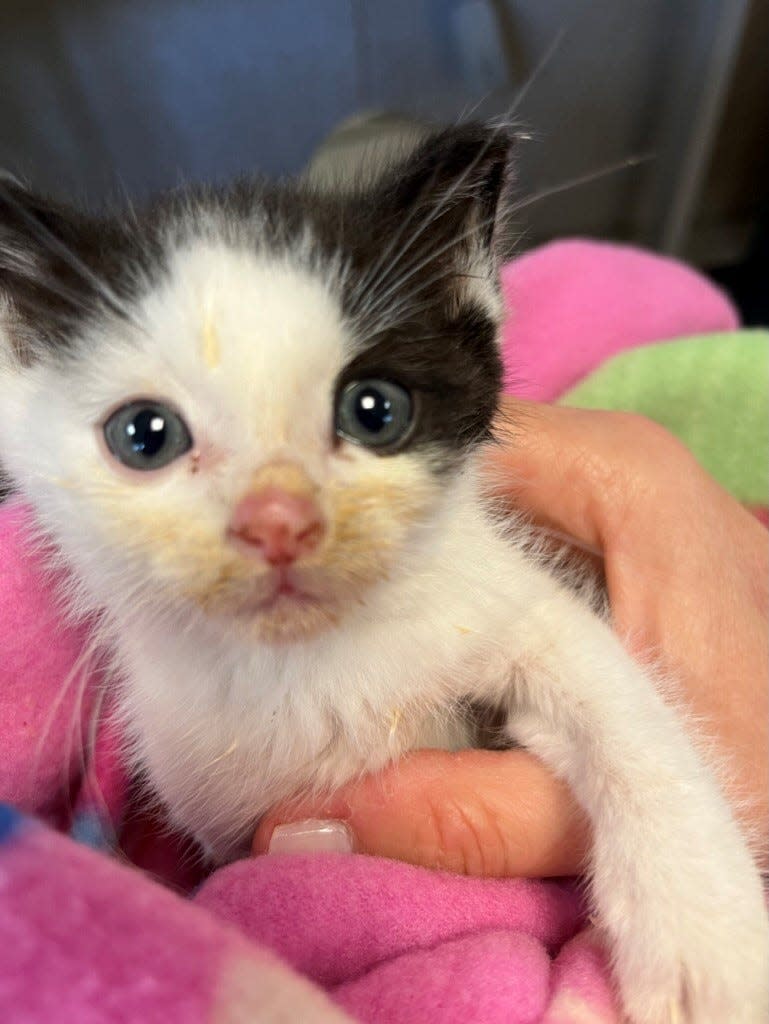Kitten dies of rabies; now students who helped care for it face vaccines for fatal disease
What started as a way for students to build animal-care skills and self-confidence ended with a dead kitten, a diagnosed case of rabies, and kids and adults at a private special-needs school and local animal shelter facing rounds of vaccinations to protect them from a fatal infection.
Several weeks ago, a kitten was brought into Rockland Green animal shelter. The kitten was playful, but had some bruising and was in need of foster care, said Dawn Bernstein of Four Legs Good, the organization that runs the shelter in Pomona.
That kitten and two others were sent to Pets for Purpose Animal Care Program at Summit School at Nyack, which provides academic, emotional and behavioral support for both day and residential students.

"The kittens were medically cleared to be fostered and our students and staff alike embraced them immediately," said Summit Principal Deborah Dolan.
Then the kitten fell ill. The kitten was taken to a local animal hospital where it died. The other two kittens were returned to Four Legs Good, where they remain in isolation.
Post-mortem testing revealed the kitten, which Four Legs Good said was about 4 weeks old, had rabies.
Summit could not provide the number of students undergoing vaccines, citing privacy concerns. The school said it was working with the Rockland County Department of Health. The county has said it has worked to identify anyone who may need treatment, that Good Samaritan and Nyack hospitals were providing treatment and the state was providing the vaccine doses.
Bernstein at Four Legs Good said that any attendants who handled the kitten were offered vaccines. The kitten was not put in contact with any other animals at the shelter.
Prevention and treatment
It's rare for rabies to be transmitted to humans, said Dr. Marina Keller, an internal medicine and infectious disease specialist at Westchester Medical Center. That's because the infected animal's saliva has to get under the skin to the nervous system, where it travels to the spinal cord and brain.
By the time symptoms develop, treatment is too late; at that stage, the virus is 100% fatal.
It can take weeks or months from exposure, usually through an animal bite, to falling ill with rabies, Keller said. "After a bite, you can go to hospital and get a round vaccines to prevent this terrible infection."
Meet Galli: Rockland County Sheriff's K9 scores first rescue, some treats, and lots of playtime
Preventive treatment in humans consists of a series of rabies immune globulin. After the first course, or the "Day 0" dose of rabies vaccination, follow-up rabies vaccinations are given on Days 3, 7, and 14 from exposure. Those shots are given in the deltoid muscle, alternating arms for each sequence.
Kittens and puppies should receive a rabies vaccine around 12 weeks. The kitten sent to Summit School was too young to be vaccinated.
County health departments, including in Rockland and Westchester, hold periodic rabies vaccination clinics for pets.
Virus always present
Rabies is present throughout the continental United States, according to the U.S. Centers for Disease Control.
It can infect any warm-blooded animal. In New York, the disease is seen mainly in raccoons, red foxes, bats and skunks.
Rabies cannot be detected unless testing is done on a dead animal.
Mandatory pet vaccinations have made the disease rare over the decades.
Polio in NY: Are we out of the woods for recurrence of paralytic virus?
But Keller, the infectious diseases doctor, said it still spreads in the wild and feral animal population. As suburbia encroaches on areas where wild animals live, Keller said, encounters become more likely, and so does possible exposure.
"I can't stress how important it is to get all our pets vaccinated," she said, "and feral animals shouldn't be played with."
The possibility of rabies exposure is something doctors at Westchester Med understand too well. In 1995, Maria Fareri, 13, died of rabies at Westchester Medical Center. It's believed she was exposed to rabies by a bat. Her family founded Maria Fareri Children's Hospital at the Valhalla medical center in her memory.
Nancy Cutler writes about People & Policy for lohud.com and the USA Today Network New York. Reach her at ncutler@lohud.com; follow her at @nancyrockland on X (formerly Twitter), Instagram and Threads.
This article originally appeared on Rockland/Westchester Journal News: Rabid kitten leads to students at therapeutic school needing vaccines

